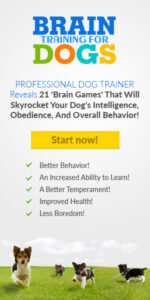The Ultimate Dog Care Guide for First-Time Pet Owners
Essential Dog Care Basics
## Essential Dog Care Basics
Bringing a new furry friend home is a joyous occasion! But before the puppy cuddles and playful zoomies, it’s crucial to understand the fundamentals of dog care. This guide covers the essential basics to ensure your canine companion thrives.
**Nutrition: Fueling a Healthy Life.** Choosing the right food is paramount. Opt for a high-quality dog food appropriate for your dog’s age, breed, and activity level. Follow feeding guidelines and avoid table scraps, which can be harmful. Always have fresh, clean water available.
**Exercise: Mental & Physical Wellbeing.** Dogs need regular exercise – think daily walks, playtime, and opportunities to explore. The amount of exercise varies depending on the breed and age. Mental stimulation is equally important; puzzle toys and training sessions keep their minds sharp.
**Grooming: Keeping Clean & Comfortable.** Regular grooming prevents matting, reduces shedding, and helps detect skin problems early. Brush your dog frequently, bathe them as needed, and trim their nails to a comfortable length. Don’t forget ear cleaning!
**Health: Prevention is Key.** Schedule regular vet visits for vaccinations, parasite prevention, and health checkups. Be aware of common signs of illness, such as changes in appetite, lethargy, or vomiting. Pet insurance can help manage unexpected veterinary costs.
**Training & Socialization: Building a Well-Adjusted Dog.** Start training early using positive reinforcement methods. Expose your dog to various people, places, and other dogs to help them become well-socialized and confident. A well-trained and socialized dog is a happy dog!
Nutrition and Feeding Guide
## Nutrition and Feeding Guide
Welcome to the world of dog ownership! One of the most crucial aspects of providing a happy, healthy life for your furry friend is understanding their nutritional needs. As a first-time owner, navigating the world of dog food can feel overwhelming, but we’re here to break it down.
Choosing the right food is paramount. Look for dog food that lists a specific protein source (like chicken, beef, or lamb) as the first ingredient. Avoid foods with excessive fillers like corn, wheat, and soy. These offer little nutritional value and can contribute to allergies.
Puppies have different nutritional requirements than adult dogs. Puppy food is formulated with higher levels of protein, fat, and calcium to support growth and development. Adult dog food balances these nutrients for sustained energy and overall health. Senior dogs often benefit from formulas with fewer calories and added supplements for joint health.
Feeding frequency depends on your dog’s age, breed, and activity level. Puppies typically need to be fed 3-4 times a day, while adult dogs usually do well with two meals. Portion control is key to preventing obesity, so carefully follow the feeding guidelines on the food packaging.
Consider your dog’s individual needs. Some dogs have sensitivities or allergies that require specific diets. Consult with your veterinarian to determine the best food for your dog’s unique health profile. Fresh, home-cooked meals can be a great option, but require careful planning to ensure nutritional completeness.
Always provide fresh, clean water. And remember, treats should only make up a small portion of your dog’s daily calorie intake. A well-nourished dog is a happy dog!
Health and Wellness – Preventative Care
## Health and Wellness – Preventative Care
Bringing a new furry friend home is a joyous occasion! But with that joy comes responsibility. As a first-time dog owner, understanding preventative care is crucial for a long, happy, and healthy life for your pup. Think of it as an investment in their well-being – and peace of mind for you.
Regular veterinary check-ups are the cornerstone of preventative care. Aim for annual wellness exams, or more frequent visits for puppies and senior dogs. These aren’t just routine – they’re opportunities for early detection of potential health issues, often before symptoms even appear. Your vet can assess your dog’s weight, check their teeth and gums, listen to their heart and lungs, and perform necessary vaccinations.
Vaccinations are vital! They protect against serious, often life-threatening diseases like rabies, parvovirus, and distemper. Follow your vet’s recommended vaccination schedule, and don’t forget booster shots to maintain immunity.
Parasite prevention is equally important. Heartworm, fleas, and ticks can cause significant health problems. Your vet can prescribe preventative medications tailored to your dog’s lifestyle and location.
Don’t overlook the power of nutrition! Feed your dog a high-quality, age-appropriate food. Proper diet supports a strong immune system and overall health.
Finally, regular grooming isn’t just about aesthetics. Brushing helps remove loose hair, prevents mats, and allows you to check for skin problems. Nail trims are also essential for comfort and mobility.
By prioritizing preventative care, you’re setting your dog up for a lifetime of health and happiness. It’s a proactive approach that fosters a strong bond and ensures they can enjoy all the wonderful things life has to offer.
Training and Socialization for Puppies
## Training and Socialization for Puppies
Bringing a new puppy home is an exciting time, filled with cuddles and playful energy! But beyond the adorable moments, building a well-adjusted dog requires consistent training and socialization – crucial for a happy, confident companion.
Start early! From the moment your puppy arrives, begin positive reinforcement training. Use rewards like treats, praise, and toys to encourage desired behaviors like “sit,” “stay,” and “come.” Keep training sessions short (5-10 minutes) and fun to maintain your puppy’s attention. Consistency is key – practice daily!
Socialization is equally vital. Expose your puppy to a variety of sights, sounds, people, and other friendly, vaccinated dogs in a controlled and positive way. Puppy classes are an excellent option, providing structured socialization opportunities and expert guidance.
Don’t overwhelm your puppy! Introduce new experiences gradually, always ensuring positive interactions. A fearful or anxious puppy can develop behavioral problems later in life.
Early socialization helps your puppy learn appropriate dog etiquette, reduces fear and aggression, and fosters a well-rounded personality. Expose them to different surfaces (grass, pavement, carpet), sounds (traffic, kids playing), and people (different ages, ethnicities, appearances).
Remember, patience and positive reinforcement are your best tools. Building a strong bond with your puppy through training and socialization sets the foundation for a lifetime of companionship. A well-socialized puppy is a happy puppy – and a happier owner!




